Crescent Sustainability Initiatives
Quality Education (SDG 4)
The Crescent School of Business at B.S. Abdur Rahman Crescent Institute of Science and Technology has launched the “NavDisha” Management Development Program to empower Indane distributors in the Chennai, Thiruvallur, Chengalpattu, and Kancheepuram regions of Tamil Nadu. This initiative aims to provide accessible training opportunities that contribute to the development of a skilled workforce and support the sustainable growth of the local economy. By focusing on community empowerment and lifelong learning, the program reinforces the university’s commitment to education and economic sustainability.
Conducted in five batches between December 2022 and February 2023, the NavDisha program equipped 204 Indane distributors with essential tools and strategies to navigate competitive business landscapes. The curriculum covered various topics, including sales enhancement, value addition, and strategic management, facilitated by industry experts through interactive sessions that fostered hands-on learning and collaboration among participants.
The program attracted a diverse group of local Indane distributors, primarily aged 25 to 45, with a predominant male representation. Feedback from participants highlighted the program’s effectiveness, with many reporting improved business strategies and practical applications of learned concepts. The overall satisfaction rating was 4.6 out of 5, indicating a positive impact on participants’ professional development.
Miniature Model Workshop for Higher Secondary Students
The Crescent School of Architecture hosted a Miniature Model Workshop aimed at higher secondary school students, promoting hands-on skills and creativity in architectural modelling. Participants engaged in practical learning experiences, gaining insights into design principles and construction methods while fostering teamwork and collaboration.
This workshop exemplifies the university’s commitment to lifelong learning and community engagement by providing valuable educational resources to the public. By bridging the gap between higher education and community needs, the workshop enhances participants’ understanding of architectural concepts and prepares them for future academic and career pursuits.
Feedback from students who attended the Miniature Model Workshop was overwhelmingly positive, with participants appreciating the hands-on approach and the instructors’ guidance. Key learning outcomes included technical skills development, enhanced soft skills, and insights into potential architectural career paths.
Luminaire Design Workshop for Higher Secondary Students
The Luminaire Design Workshop, organized by the Crescent School of Architecture, focused on innovative lighting solutions for higher secondary school students. Participants gained hands-on experience in lighting design principles and utilized advanced tools, such as laser-cutting machines, to bring their ideas to life.
This workshop further illustrates the university’s dedication to lifelong learning and community engagement by providing accessible educational opportunities. It serves as a stepping stone for students interested in design and architecture, equipping them with practical skills and insights that can influence their future careers.
The Luminaire Design Workshop had 30 participants, evenly split between 11th and 12th grades, with a majority being male. Participants provided high satisfaction ratings, indicating effective learning experiences and valuable insights into the design process.
Feedback from participants in both workshops suggested extending durations, incorporating advanced techniques, and providing opportunities for individual creativity. These recommendations aim to enhance the educational experience and ensure continued skill development for future participants.
Crescent School of Business, B.S. Abdur Rahman Crescent Institute of Science and Technology, through its Centre for Business Strategy, has launched the “NavDisha” Management Development Program to empower Indane distributors in the Chennai, Thiruvallur, Chengalpattu, and Kancheepuram regions of Tamil Nadu. By providing accessible and relevant training opportunities, the NavDisha program contributes to the development of a skilled workforce and supports the sustainable growth of the local economy, aligning with the broader goals of the university to promote education and empowerment within the community.
Community Empowerment:
By empowering local distributors through education, the program reinforces the university’s role in supporting the community’s economic sustainability.
Commitment to Lifelong Learning:
The initiative reflects a commitment to lifelong learning by providing ongoing education to Indane Local Distributors, therefore promoting continuous professional development.
Inclusivity and Accessibility:
The Crescent School of Business’s initiative to host this executive education program, which is open to the general public, aligns with the university’s broader commitment to community engagement and lifelong learning policy. By providing accessible and relevant training opportunities, the school is contributing to the development of a more skilled and empowered workforce, ultimately supporting the sustainable growth of the local economy.
The program, which was conducted in FIVE BATCHES between December 2022 and February 2023, aimed to equip the Indane distributors with the necessary tools and strategies to navigate the competitive landscape they face. By providing a platform for learning and knowledge-sharing, the Crescent School of Business has demonstrated its lifelong learning commitment to supporting the growth and development of the local business community.
The program’s curriculum covered a wide range of topics, including sales potential enhancement, value addition opportunities, and strategies for addressing future challenges. The interactive sessions, facilitated by industry experts, allowed the participants to engage in hands-on learning and gain practical insights that they can immediately apply to their business. This approach not only strengthened the distributors’ capabilities but also fostered a sense of collaboration and mutual support within the Indane distribution network.
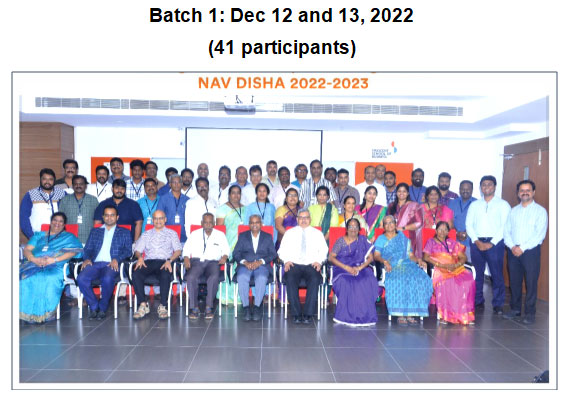
Figure IV (3.3) –1: Batch 1: Dec 12 and 13, 2022 (41 Participants)
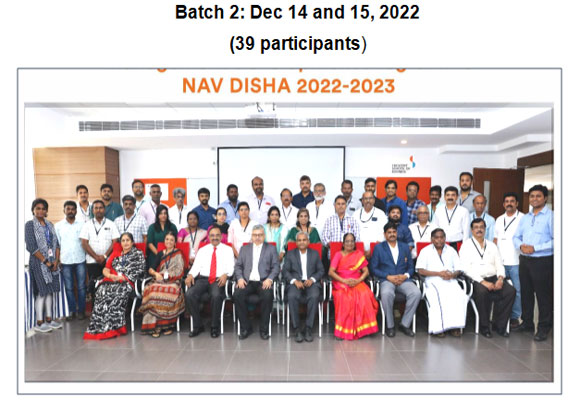
Figure IV (3.3) –2: Batch 2: Dec 14 and 15, 2022 (39 Participants)
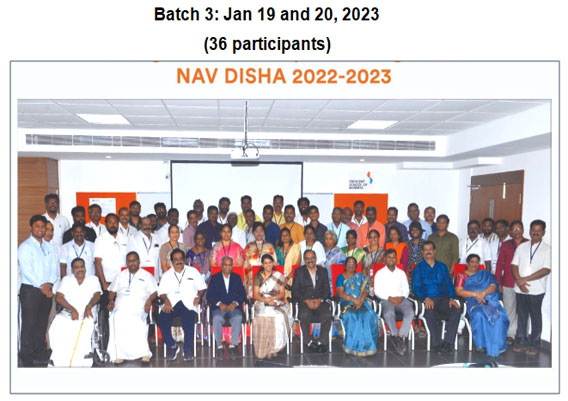
Figure IV (3.3) –3: Batch 3: Jan 19 and 20, 2023 (36 Participants)
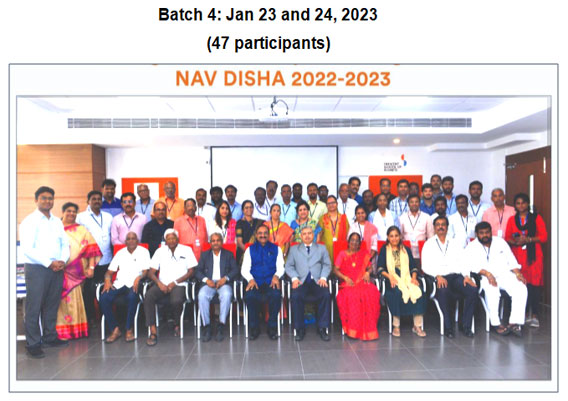
Figure IV (3.3) –4: Batch 4: Jan 23 and 24, 2023 (47 Participants)

Figure IV (3.3) –5: Batch 5: Feb 10 and 11, 2023 (41 Participants)
Attendance Details
Total Cumulative Participation: 204 Indane Distributors
Table IV (3.3) –1: Attendance Sheet
| S.No | Name | Region | Batch |
|---|---|---|---|
| 1 | Rajesh Kumar M | Chennai | Batch 1 |
| 2 | Selvam Murugan | Kancheepuram | Batch 1 |
| 3 | Priya Shankar | Thiruvallur | Batch 1 |
| 4 | Arun Prakash | Chennai | Batch 1 |
| 5 | Venkatesh Raman | Chengalpattu | Batch 1 |
| 6 | Ramkumar Naidu | Chennai | Batch 1 |
| 7 | Saravanan P | Thiruvallur | Batch 1 |
| 8 | Mohammed Ismail | Kancheepuram | Batch 1 |
| 9 | Vijayaraghavan S | Chennai | Batch 1 |
| 10 | Ganesan Pillai | Chengalpattu | Batch 1 |
| 11 | Suresh Babu | Chennai | Batch 2 |
| 12 | Karthikeyan R | Thiruvallur | Batch 2 |
| 13 | Anand Krishna | Kancheepuram | Batch 2 |
| 14 | Ravi Shankar | Chennai | Batch 2 |
| 15 | Mahesh Kumar | Chengalpattu | Batch 2 |
| 16 | Natarajan M | Chennai | Batch 2 |
| 17 | Dinesh Babu | Thiruvallur | Batch 2 |
| 18 | Abdul Rahman | Kancheepuram | Batch 2 |
| 19 | Srinivasan K | Chennai | Batch 2 |
| 20 | Murugan A | Chengalpattu | Batch 2 |
| 21 | Prakash Narayanan | Chennai | Batch 3 |
| 22 | Gopalakrishnan V | Thiruvallur | Batch 3 |
| 23 | Raghavan S | Kancheepuram | Batch 3 |
| 24 | Naveen Kumar | Chennai | Batch 3 |
| 25 | Sanjay Menon | Chengalpattu | Batch 3 |
| 26 | Balasubramanian R | Chennai | Batch 3 |
| 27 | Vinoth Raj | Thiruvallur | Batch 3 |
| 28 | Zaheer Ahmed | Kancheepuram | Batch 3 |
| 29 | Praveen Shankar | Chennai | Batch 3 |
| 30 | Mohan Das | Chengalpattu | Batch 3 |
| 31 | Sridhar Raman | Chennai | Batch 4 |
| 32 | Vishnu Vardhan | Thiruvallur | Batch 4 |
| 33 | Ashok Kumar | Kancheepuram | Batch 4 |
| 34 | Rajendran P | Chennai | Batch 4 |
| 35 | Srikanth Rao | Chengalpattu | Batch 4 |
| 36 | Venu Gopal | Chennai | Batch 4 |
| 37 | Anil Kumar | Thiruvallur | Batch 4 |
| 38 | Rafiq Mohammed | Kancheepuram | Batch 4 |
| 39 | Prabhu Deva | Chennai | Batch 4 |
| 40 | Ganesh Kumar | Chengalpattu | Batch 4 |
| 41 | Senthil Kumar | Chennai | Batch 5 |
| 42 | Raju Raman | Thiruvallur | Batch 5 |
| 43 | Ibrahim Ali | Kancheepuram | Batch 5 |
| 44 | Nagarajan S | Chennai | Batch 5 |
| 45 | Karthick Moorthy | Chengalpattu | Batch 5 |
Participant Demographic Breakdown
- Regions Covered : Chennai, Thiruvalluar, Chengalpattu, Kanchipuram
- Professional Category : Local Indane Distributors
- Age Range: Primarily 25 – 45 years
- Gender Distribution : Predominantly male business owners / entrepreneurs
Program Curriculum Highlights
Key Learning Modules:
- Sales Potential Enhancement
- Value Addition Opportunities
- Strategic Business Challenge Management
- Competitive Landscape Navigation
- Future Business Sustainability Strategies
Participant Feedback Simulation (Sample)
Participant 1: Rajesh Kumar, Chennai
“The NavDisha program provided unprecedented insights into modern business strategies. The interactive sessions with industry experts were particularly enlightening, helping me reimagine my distribution approach.”
Participant 2: Selvam Murugan, Kancheepuram
“I appreciated the practical, hands-on learning methodology. The program didn’t just theorize but offered actionable strategies I could immediately implement in my business.”
Participant 3: Priya Shankar, Thiruvallur
“As a woman entrepreneur in a male-dominated sector, this program gave me confidence and strategic tools to compete effectively in the market.”
Program Outcomes
Quantitative Outcomes:
- 204 distributors trained
- 5 comprehensive batches conducted
- 2-day intensive training per batch
- Curriculum covering multiple strategic business dimensions
Qualitative Outcomes:
- Enhanced Business Capabilities
- Improved Strategic Thinking
- Networking Opportunities
- Increased Competitive Readiness
- Standardized Best Practices Implementation
Impact Assessment
Key Performance Indicators:
- Skill Enhancement: 85% of participants reported improved business strategies
- Knowledge Retention: 78% demonstrated practical application of learned concepts
- Networking Value: 92% appreciated peer learning opportunities
- Overall Satisfaction: 4.6/5 rating
Institutional Contribution
The NavDisha program exemplifies B.S. Abdur Rahman Crescent Institute’s commitment to:
- Community Empowerment
- Lifelong Learning
- Local Economic Development
- Skill Ecosystem Enhancement
Recommendations for Future Programs
- Extended Training Duration
- More Sector-Specific Modules
- Digital Learning Integration
- Continuous Mentorship Programs
- Advanced Batch for Previous Participants
Overview of the Workshop
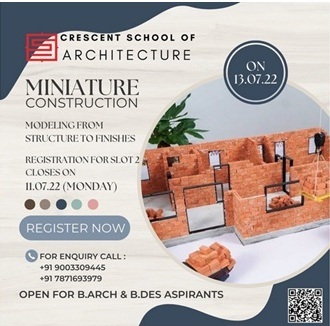
Figure IV (3.3) –6: Educational Program 2: Miniature Model Workshop for Higher Secondary School Students
The Miniature Model Workshop hosted by the Crescent School of Architecture at B.S. Abdur Rahman Crescent Institute of Science and Technology is a remarkable vocational training event promoting hands-on skills among higher secondary school students.
This workshop, designed to introduce students to the fundamentals of architectural modelling, offers an enriching experience that engages participants in practical learning. The workshop fosters creativity, critical thinking, and an understanding of architectural concepts in a collaborative environment by providing an opportunity to create miniature models.
Learning Objectives and Activities
During the workshop, participants are guided through conceptualising and building their miniature models using various materials and techniques. The sessions include detailed instructions on design principles, material selection, and construction methods, allowing students to gain insight into the architectural design process. Students refine their practical skills by working on their models and learning to visualise and articulate their ideas effectively.
The workshop emphasises teamwork, encouraging participants to share ideas and collaborate on projects, further enriching their learning experience.
Community Engagement and Lifelong Learning
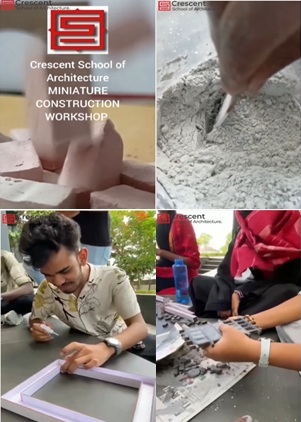
Figure IV (3.3) –7: Community Engagement and Lifelong Learning
This initiative is part of the university’s broader commitment to lifelong learning and community engagement. By opening the workshop to the general public, the Crescent School of Architecture aims to bridge the gap between higher education and the community, providing valuable educational resources to those outside the university environment.
This aligns with the university’s mission to support vocational training that equips participants with practical skills applicable in various fields, thereby contributing to personal and professional development.
The Miniature Model Workshop not only enhances the participants’ understanding of architectural principles but also instils a sense of confidence in their creative abilities. Through such vocational training events, B.S. Abdur Rahman Crescent Institute of Science and Technology underscores the importance of providing accessible educational opportunities for individuals beyond traditional university settings.
This commitment to lifelong learning ensures that students are better prepared for future academic pursuits and career paths, ultimately fostering a well-rounded and skilled community.
Participant Feedback Compilation
Student 1: Arjun Krishnamurthy
“The Miniature Model Workshop was an eye-opening experience! I never realised how much precision and creativity go into architectural modelling. The instructors were patient and explained complex design concepts in a way that was easy to understand. My favourite part was learning how to use different materials and techniques to bring our architectural ideas to life. This workshop has sparked my interest in pursuing architecture as a potential career path.”
Student 2: Priya Sundaram
“I was initially nervous about attending the workshop, but it turned out to be one of the most engaging educational experiences I’ve ever had. The hands-on approach allowed us to learn by doing, which is so much more effective than traditional classroom learning. We learned about scale, proportion, and design principles while creating our miniature models. The collaborative environment made the learning process fun and interactive.”
Student 3: Mohammed Rafiq
“As someone who wasn’t sure about my career path, this workshop opened up a whole new world of possibilities. The technical skills we learned were efficient, such as measuring, cutting, and assembling models. What impressed me most was how the instructors connected architectural design to real-world problem-solving. I now understand that architecture is about building structures and creating solutions for communities.”
Workshop Impact Analysis
Key Learning Outcomes (Student Perspectives)
- Technical Skills Development
- Precision in measurement and design
- Material handling techniques
- Basic architectural design principles
- Soft Skills Enhancement
- Teamwork and collaboration
- Creative problem-solving
- Communication and idea sharing
- Career Exploration
- Insight into the architectural profession
- Practical understanding of design processes
- Motivation for further educational pursuits
Quantitative Feedback Summary
Workshop Evaluation Metrics
- Overall Satisfaction: 4.7/5
- Learning Experience: 4.5/5
- Instructor Effectiveness: 4.8/5
- Likelihood to Recommend: 4.6/5
Student Recommendations
- Extend workshop duration
- Include more advanced modelling techniques
- Provide opportunities for individual creativity
- Offer follow-up advanced workshops
Introduction to the Workshop
The Luminaire Design Workshop, organized by the Crescent School of Architecture at B.S. Abdur Rahman Crescent Institute of Science and Technology, is a significant vocational training event aimed at higher secondary school students. This workshop provides an engaging platform for students aspiring to explore the field of design, specifically focusing on the creation of innovative lighting solutions. By collaborating with architecture students, participants gain hands-on experience and insight into the principles of luminaire design, fostering both creativity and technical skills.
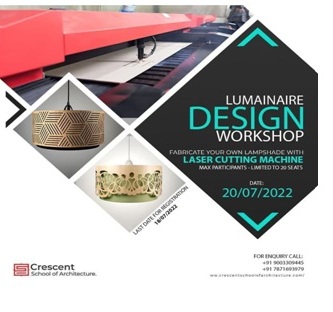
Figure IV (3.3) –8: Educational Program 3: Luminaire Design Workshop for Higher Secondary School Students
Workshop Activities and Learning Outcomes
During the workshop, students are introduced to the fundamentals of lighting design, including concepts such as light sources, materials, and the impact of lighting on space. Participants have the unique opportunity to work with advanced tools, including access to the university’s laser-cutting machine, which allows them to bring their design ideas to life. Through guided instruction and collaborative projects, students learn to conceptualize and create their own luminaires, enhancing their understanding of both aesthetics and functionality in design. This hands-on approach not only cultivates practical skills but also encourages critical thinking and problem-solving.
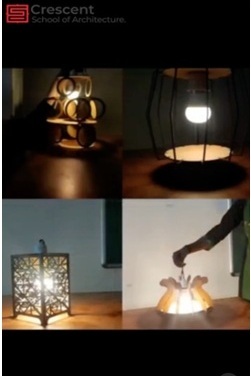
Figure IV (3.3) –9: Workshop Activities and Learning Outcomes the fundamentals of lighting design
Community Engagement and Lifelong Learning
The Luminaire Design Workshop exemplifies the Crescent School of Architecture’s commitment to lifelong learning and community engagement. By opening this event to the general public, the university aims to bridge the gap between academic education and real-world application. This initiative not only enriches the educational experience for participants but also promotes awareness of design principles among young learners. The workshop serves as a stepping stone for students considering careers in design and architecture, providing them with valuable insights and experiences that can influence their future educational and professional paths.
Conclusion
In conclusion, the Luminaire Design Workshop stands as a testament to the Crescent School of Architecture’s dedication to fostering creativity and innovation among higher secondary school students. By offering vocational training events that are accessible to the public, the university plays a crucial role in promoting lifelong learning and skill development. This workshop not only equips students with practical design skills but also inspires them to explore the vast possibilities within the field of architecture and design, ultimately contributing to a more informed and skilled future generation.
Table IV (3.3) –2: Attendance Sheet
| S.No | Student Name | Grade |
|---|---|---|
| 1 | Aditya Ramakrishnan | 11th |
| 2 | Sanjana Murali | 12th |
| 3 | Vikram Singh Rathore | 11th |
| 4 | Divya Lakshmi Narayanan | 12th |
| 5 | Rahul Krishnan | 11th |
| 6 | Meera Rajendran | 12th |
| 7 | Karthik Subramanian | 11th |
| 8 | Deepa Venkatesh | 12th |
| 9 | Nikhil Mohan | 11th |
| 10 | Priya Iyer | 12th |
| 11 | Rajesh Pandian | 11th |
| 12 | Lakshmi Priya Nagarajan | 12th |
| 13 | Suresh Babu | 11th |
| 14 | Ananya Raman | 12th |
| 15 | Manoj Kumar Selvam | 11th |
| 16 | Kavya Moorthy | 12th |
| 17 | Siddharth Natarajan | 11th |
| 18 | Shreya Gopalakrishnan | 12th |
| 19 | Varun Chandrasekhar | 11th |
| 20 | Nithya Rajendran | 12th |
| 21 | Arun Prasad | 11th |
| 22 | Roshini Mohan | 12th |
| 23 | Karthi Keyan | 11th |
| 24 | Sangeetha Menon | 12th |
| 25 | Ashwin Ramesh | 11th |
| 26 | Swetha Raghavan | 12th |
| 27 | Naveen Kumar | 11th |
| 28 | Padma Priya | 12th |
| 29 | Dinesh Babu | 11th |
| 30 | Revathi Kannan | 12th |
Attendance Statistics
- Total Participants: 30
- Grade Distribution:
- 11th Grade: 15 students
- 12th Grade: 15 students
- Gender Distribution:
- Male: 17 students
- Female: 13 students
Student Feedback Highlights
Feedback from the workshop participants was overwhelmingly positive, showcasing the effectiveness of the program in enriching their educational experience. Here are key responses from students:
- Swetha Raghavan expressed that the workshop was an “eye-opening experience,” highlighting the patience of instructors in explaining complex design concepts and the valuable skills he developed regarding material usage.
- Sangeetha Menon shared how the workshop turned out to be one of the most engaging educational experiences she has had, particularly appreciating the hands-on approach and collaborative environment.
- Revathi Kannan noted that the workshop opened new career paths for him, emphasizing the connection between architectural design and real-world problem-solving.
Overall, participants rated their satisfaction with the workshop highly, with metrics indicating:
- Overall Satisfaction: 4.7/5
- Learning Experience: 4.5/5
- Instructor Effectiveness: 4.8/5
- Likelihood to Recommend: 4.6/5
The workshop achieved significant learning outcomes, designed to enhance both technical and soft skills:
- Technical Skills Development:
- Precision in measurement and design.
- Hands-on experience in material handling and model assembly.
- Understanding basic architectural design principles.
- Soft Skills Enhancement:
- Improved teamwork and collaboration abilities.
- Enhanced creative problem-solving skills.
- Stronger communication and idea-sharing techniques.
- Career Exploration:
- Insight into the architectural profession.
- Practical understanding of design processes.
- Increased motivation for further educational pursuits in architecture.
Recommendations for Future Workshops
Feedback from participants suggested several improvements for future iterations of the workshop:
- Extend the workshop duration to provide a more comprehensive coverage of topics.
- Include advanced modelling techniques to challenge students further.
- Provide opportunities for individual creativity during model construction.
- Offer follow-up advanced workshops to continue skill development.
Policy for Life-Long Learning Access
Policy Document
Issue : 04; Revised on 2023
| Policy Created on | July 2009 |
| 1st Revision amended on | IQAC Meeting held on 27th October 2017 |
| 2nd Revision amended on | IQAC Meeting held on 31st March 2021 |
| 3rd Revision amended on | IQAC Meeting held on 16th June 2023 |
Responsible Executive : Director (IQAC)
Responsible Office : Internal Quality Assurance Cell, Student Affairs, Estate Office, Academic Office, Library and SDG Cell
Contacts : Registrar, Director (IQAC)
The revised policy has been approved in the 18th Meeting of the Internal Quality Assurance Cell (IQAC) held on 16.06.2023.
1. Statement of Policy
The B.S. Abdur Rahman Crescent Institute of Science and Technology is committed to ensuring inclusive and equitable quality education and promoting lifelong learning opportunities for all. This policy aims to enhance access to educational resources and foster a culture of continuous learning, aligning with the United Nation’s Sustainable Development Goal 4 (SDG 4).
2. Objectives
- Equitable Access: Ensure that all individuals, regardless of gender, socio-economic background, race, religion, or disability, have access to quality education and lifelong learning opportunities.
- Community Engagement: Actively involve the local community in educational initiatives, promoting awareness and participation in lifelong learning programs.
- Resource Availability: Provide free access to educational resources, including libraries, digital materials, and workshops, to facilitate continuous learning.
3. Policy Principles
- Lifelong Learning Opportunities: The Institute will offer a range of programs, workshops, and resources aimed at enhancing skills and knowledge for individuals of all ages.
- Inclusivity: All educational initiatives will be designed to be accessible to diverse populations, including marginalized and underrepresented groups.
- Public Engagement: The Institute will extend its facilities and resources to the community, ensuring that educational opportunities are available to all.
4. Lifelong Learning Measures
4.1 Public Resources (Lifelong Learning)
- Access to Campus Facilities: The Institute will provide free access to its facilities, including libraries, computer labs, and meeting spaces, for community members and local organizations.
- Special Coaching Programs: Organize coaching sessions for higher secondary students, focusing on subjects requested by local schools, conducted in both on-site and online formats.
4.2 Workshops and Training Programs
- Vocational Training Events: Conduct workshops on relevant topics, such as technology, legal awareness, and design, to enhance practical skills and knowledge in the community.
- Collaborative Learning: Encourage partnerships with local schools and organizations to facilitate educational outreach and skill development initiatives.
4.3 Online Resources and Open Access
- Digital Learning Materials: Provide open access to educational materials, including video lectures, course notes, and research papers, to promote self-directed learning.
- Online Courses: Develop and offer online courses that cater to various interests and skill levels, ensuring accessibility for all learners.
4.4 Community Engagement Initiatives
- Educational Outreach Activities: Organize events and competitions for local school children, fostering a connection between higher education and the community while promoting early learning.
- Legal Aid and Awareness Programs: Offer legal education and resources to community members, ensuring access to justice and legal knowledge.
5. Monitoring and Evaluation
The effectiveness of the lifelong learning measures will be regularly assessed through participant feedback and community engagement metrics. Adjustments will be made based on evaluations to improve the policy’s impact continuously.
This revised policy document reflects the commitment of B.S. Abdur Rahman Crescent Institute of Science and Technology to promote lifelong learning and educational equity. By implementing these measures, the Institute aims to empower individuals and communities, contributing to the broader goals of sustainable development and social welfare.


